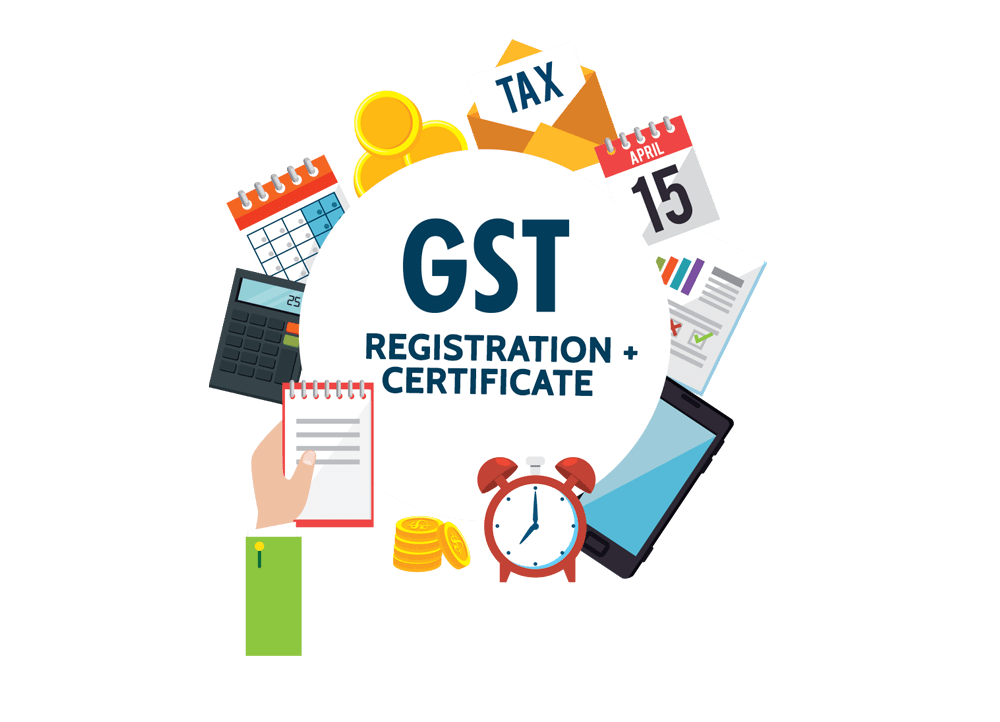Singapore GST Registration: What You Need to Know Before Applying
Navigating the Complexities of GST Registration: Specialist Tips and Ideal Practices for Smoother Conformity
Browsing the intricate landscape of Product and Services Tax Obligation (GST) registration demands an eager understanding of the developing regulatory framework and thorough attention to detail. As organizations aim to make certain compliance and prevent mistakes, professional advice and best practices can function as very useful compass points in this facility surface. From analyzing enrollment needs to utilizing technical tools for streamlined processes, the journey towards smoother GST compliance is diverse and nuanced. Stay tuned to reveal important methods and understandings that can aid businesses steer through the complexities of GST enrollment with skill and self-confidence.
Understanding GST Enrollment Demands

In addition to turnover thresholds, services engaging in interstate sales or providing taxed solutions might additionally be needed to register for GST, also if their turn over is below the prescribed limitation (Singapore GST Registration). Comprehending these requirements and limits is necessary to avoid penalties and make sure smooth operations within the lawful framework
In addition, organizations must collect and prepare the needed paperwork, such as evidence of identity, address, business unification, and savings account details, prior to initiating the GST registration procedure. Stopping working to provide exact information or fulfill the registration target dates can lead to fines or various other legal effects. Services need to stay educated about the certain GST enrollment requirements suitable to their operations to maintain compliance and prevent possible problems.
Organizing Important Documents
Businesses getting started on the GST registration process should diligently compile and organize the crucial documentation required for submission. The crucial files normally required for GST enrollment consist of evidence of company registration or identification, unification and address proofs of the organization proprietors or companions, checking account information, evidence of major workplace, and authorization types. Making certain that these documents are conveniently offered and organized can improve the registration process and prevent hold-ups or beings rejected.
To effectively organize crucial documents, organizations must produce a central system for storing and classifying the needed documents (Singapore GST Registration). Utilizing electronic storage remedies can aid preserve very easy accessibility and make certain that papers are safely kept. Furthermore, establishing a list of all needed files can act as a valuable device to track what has actually been gathered and what is still needed for entry

Leveraging Technology for Efficiency
Enhancing operational performance via technical assimilation is extremely important for modern-day services navigating the complexities of GST registration. Leveraging technology can streamline procedures, minimize mistakes, and make certain timely compliance with GST laws. One of the crucial ways modern technology can help in GST registration is through making use of automated software program options. These tools can aid organizations track sales, create invoices, compute taxes, and submit returns precisely. By automating these tasks, companies can save and decrease hands-on mistakes time that would or else be invested in recurring management work.
Additionally, modern technology can facilitate smooth communication with tax obligation authorities. On-line websites and interaction tools allow organizations to submit documents, fix questions, and obtain updates in a more efficient fashion. This not just speeds up the enrollment process yet likewise aids in keeping transparent and reliable interaction with the pertinent authorities.
Moreover, cloud-based storage space solutions offer a safe and secure platform for companies to shop and accessibility their economic data, making certain conformity with GST record-keeping needs. By centralizing data storage space and automating processes, companies can improve their general effectiveness and precision in GST enrollment treatments.
Proactive Conformity Surveillance

To ensure efficient positive conformity surveillance, services ought to develop durable interior controls, conduct regular audits, and leverage automation devices for real-time tracking of GST purchases. Regular training sessions for workers on GST compliance requirements can additionally help in developing a culture of compliance within the organization. Additionally, engaging with tax consultants or experts can give useful insights and guidance on navigating intricate GST policies.
Engaging With Specialist Specialists
Involving seasoned tax obligation professionals can considerably strengthen a company's understanding and conformity with detailed GST policies. Expert professionals bring a wealth of understanding and experience to the table, aiding businesses browse the intricacies of GST registration with convenience. By leveraging their proficiency, business can make certain precise filings, lessen the risk of errors, and stay current with the most up to date governing changes.
When engaging with professional specialists, it is important to pick specialists with a strong performance history in GST compliance (Singapore GST Registration). Look more info here for specialists that have a deep understanding of the relevant laws and policies, along with experience functioning with businesses in your industry. Effective communication is type in this you can try here collaboration, so make certain to plainly specify your assumptions and establish routine touchpoints to go over progression and resolve any kind of problems
In addition, professional consultants can give important understandings and guidance on maximizing your tax obligation method, identifying potential cost-saving possibilities, and streamlining your conformity procedures. Overall, investing in expert working as a consultant solutions can go a lengthy means in ensuring smoother GST conformity and staying clear of expensive errors.
Conclusion
To conclude, browsing the complexities of GST enrollment calls for a detailed understanding of the needs, organization of essential documentation, leveraging modern technology for effectiveness, proactive compliance monitoring, and involvement with professional consultants. By following these ideal methods, companies can ensure smoother conformity with GST laws and avoid prospective penalties or penalties. It is necessary to stay you can look here notified, positive, and diligent in taking care of GST registration to keep conformity and support financial stability.
To ensure conformity with tax obligation laws, services should extensively understand the intricate demands for GST registration. Goods and Services Tax (GST) is a value-added tax obligation imposed on most products and solutions in a country, making it crucial for organizations to register for GST to stay clear of lawful consequences.Additionally, businesses need to collect and prepare the necessary paperwork, such as evidence of identity, address, organization incorporation, and bank account information, prior to initiating the GST enrollment process. Services should remain notified regarding the specific GST registration demands suitable to their procedures to keep conformity and avoid prospective problems.
The vital records normally required for GST enrollment consist of evidence of business registration or identity, address and incorporation proofs of the service proprietors or partners, bank account details, evidence of major area of organization, and consent kinds.